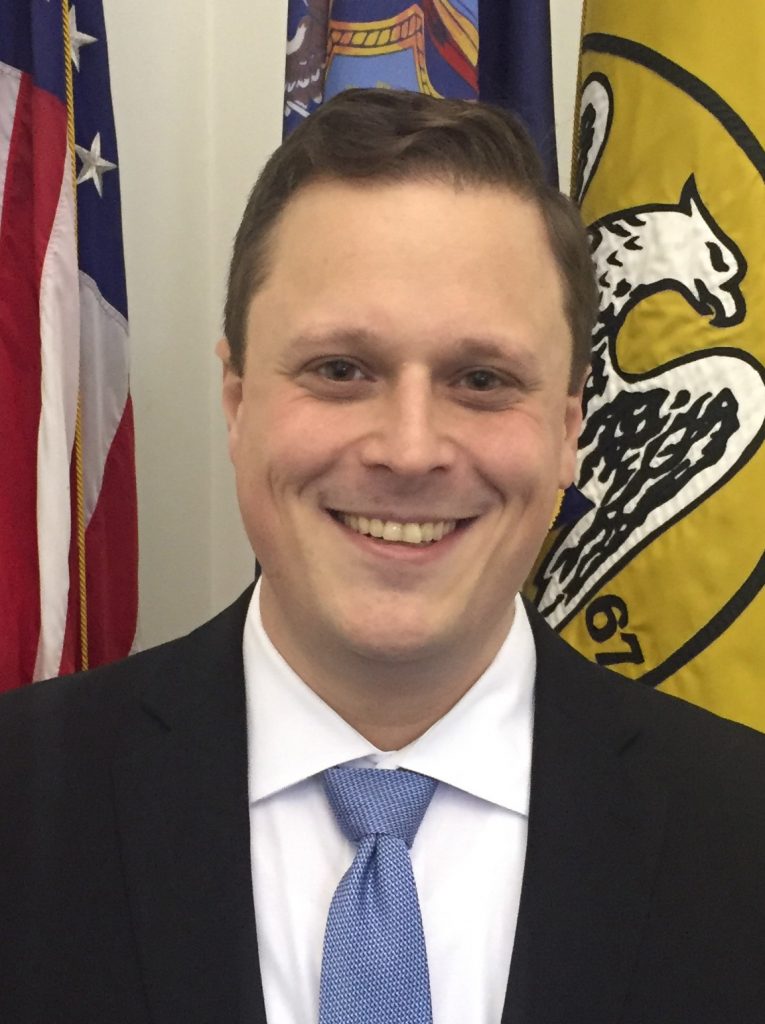
Incumbent Dan Livingston is the Democratic candidate for Binghamton’s 2nd district seat on the Binghamton City Council. Livingston has previously served as an appointee to Binghamton’s Community Development Advisory Committee, and has worked with AmeriCorps. He is a founding member of Binghamton Urban Farm.
In your opinion, what is the most pressing issue in your district and why?
“The governance and oversight of the [Binghamton-Johnson City Joint] Sewage Treatment Plant. This is the most significant locally managed construction project in a generation, and the burden of its cost will be carried by residents for the next 20 years. If we fail to deliver a quality-functioning project to the ratepayers, then we will be paying for that failure for decades to come. Increased rents and increased financial stress on homeowners and businesses are coming because of the almost $300 million price tag on this project. Oversight and accountability is critical at this final stage of construction, and we need a city council that has the will to act independently, ask tough questions and work together to ensure that these private contractors deliver the facility that was promised. We need to address the long-standing issues with the governance structure of the facility.”
How do you envision engaging with the community and addressing the concerns they may have? More specifically, what would you do to engage Binghamton University students in these community issues?
“In 2014, I founded the Nextdoor community for Binghamton. The community now includes close to 4,000 residents. Nextdoor is a social networking site for people who live in our city, and it has served as a positive way for residents to engage with each other online. Since taking office in January, I have used Nextdoor, as well as other digital platforms, to engage publicly with constituent concerns and requests. I have also filmed all of the meetings I have attended inside City Hall, and posted them publicly on YouTube as well as reposting them with contextual commentary on Facebook and Twitter. From time to time, when there has been a public hearing on an important issue, I have worked through my online platforms to inform the public and encourage participation.”
Do you have any plans to address the housing blight in your district, and the city as a whole? Please explain why or why not.
“I plan to work with the Broome County Safe Housing Task Force to adapt some of their recommendations, such as inclusionary zoning and proactive code enforcement to the city of Binghamton. Because the task force is comprised of such a broad base of stakeholders, community members, government and elected officials, they are uniquely positioned to provide recommendations to our city that can best help us address blight, and to improve and create housing that is [of] quality, safe and affordable.”
If you could make changes to the building codes or code enforcement in the city, what would they be? If you would not make any changes, please explain why not.
“At the Oct. 26 business meeting of the Binghamton City Council, there will be a public hearing on an overhaul of the city’s zoning ordinances. I believe that these changes strike a balance between preserving the character of our neighborhoods while also accommodating a lot of the student life that’s happening in our city right now. Because the zoning ordinances haven’t adequately addressed student housing, much of that housing has existed in a regulatory gray zone. These changes aim to create a coherent framework for student housing in the city. With respect to code enforcement, I will continue to work to bring more resources to our code enforcement office to ensure that compliance and enforcement with the city’s zoning ordinances shift from a reactive system, to a proactive one. There’s a lot of work to be done. Properly funding our code enforcement will be a big part of getting us there.”
What changes, if any, would you make to public transportation in your district and why?
“Unfortunately, the public transportation system is managed by Broome County, so as a City Council member I wouldn’t have any direct control over what happens within that system. If I had any power in that regard, I would like to see a greater investment in our public transportation system. Studies of poverty in our region identify transportation as a considerable factor in exacerbating the impact of poverty on a household.”


